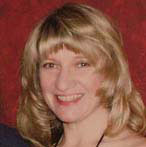“Adapt or perish, now as ever, is nature's inexorable imperative.” H. G. Wells
MY INTERESTS: If you don’t know me - My interest and research is in autism. It seemed only right to start with the H.G. Wells quote this morning. His words may hold much truth for children with autism.
WHERE AUTISM STANDS: There are MANY theories on what is actually occurring in children with autism, why is it occurring, why some start to develop typically and then regress into it, and why some seem to “grow out” of it while many do not.
TODAY'S INTERESTING THEORY 1: One of the many interesting theories I have been reading about is the idea that autism is not so much a biological malfunction (although there may be specific biological or environmental components that predispose it) as an adaptation occurring from trauma at birth or while still in the womb.
This idea does not involve physical trauma, but primitive brain trauma that somehow sets the stage for fear as a kind of first response. The autistic behaviors that typical people view as strange (flapping, staring, unresponsiveness to visual and audio stimuli, over responsiveness to being touched by material or people, etc.) might be considered just coping mechanisms for a child with autism. They do these things (consciously or not) as an adaptation response to allow them to survive (“not perish”) with specific stimuli viewed as overwhelming stress. Hence, if one thinks about it in such a fashion we can give consideration to the fact that autistic behaviors might actually be a positive (temporary) means of survival to an overwhelmed child. One author associated it with the likes of PTSD. Beyond PTSD is the outcome of post traumatic growth. Could there not also be ASD growth too? I believe so.
TODAY'S INTERESTING THEORY 2: I don’t agree with much of Freud’s work or psychoanalysis, but want to read every considered cause of autism to properly do my research. With that said, another book I am currently reading is written by a British psychotherapist who talks about more than just the idea of auto-generated encapsulation and other psychoanalytic findings. While I disagree with the specific terms used to describe possible causes of the traumas suggested, I do like and agree with the fact that this author also considers trauma and fear as the motivation for autistic behaviors.
MY CONCLUSION ABOUT THESE TWO THEORIES: I do not agree with either of these authors about the cause, but the association with fear and possible trauma is important. My experiences lead me to believe people exhibiting autistic behaviors are coping with something that we have yet to understand and that the preconception of fear is atleast a part of it.
I do NOT believe that autism equals brain damage! In fact, quite the contrary, it seems that even the “low functioning” people I know with autism have quite a remarkable way of thinking and manipulating the situations around them if observers are smart enough to catch onto it. I believe that all people with autism (even those deemed low functioning) are of equal intelligence with us people deemed “typical”, but it doesn't show up on our current intelligence tests. I also believe that some people with autism have greater and lesser intelligence too, but do not actually have mental retardation, MR, unless it is a concomitant disorder.
THE MEANING OF “AUTISM” AND WHEN IT BEGAN: It is important to understand the origins of the “autism” label we are so widely using today. Leo Kanner wrote the first paper describing early infantile autism in 1943 after observing several children and Asperger's syndrome, currently considered a subtype of autism, was originally described by an Austrian psychiatrist, Hans Asperger, in 1944.
However, Kanner did not invent the word. The word autistic was used to describe schizophrenic thought patterns in patients with schizophrenia. The word is derived from a Greek word "authos", meaning self. Autistic thinking has been defined as "self-centered" or thinking which is intelligent but only to the self. Autism has also been defined as a “barrier” in some neurotic patients.
Furthermore, since scientists consider empirical evidence, we might also consider a paper wrote by Melanie Klein in 1930 that describes what would now be considered an autistic child but was then diagnosed as “dementia praecox” (schizophrenia). This was fourteen years before Kanner's paper. By the way, Schizophrenia was first described by Emil Kraepelin in 1896. However, dates do not mean that these disorders did not exist before the given date. The date is only when the label (or mislabel) was created or given for a specific group of symptoms. Autism, schizophrenia, and many other disorders may have been with us for many centuries. We don’t know how long autism has been around.
Since there is no world or national database for who is diagnosed with what and who isn't, people have varied opinions on if autism is increasing or if it is just being diagnosed more and more as our labels for the autistic spectrum disorders, ASD, become more clear and refined. The media has also given ASD alot of attention in the last few years. When we become aware of something, we are able to notice it more. I know I am noticing ASD alot more, but like everyone else - is it because I've been made aware of it or because it is on the uprise in the world? We've also got to consider that such conditions in the U.S. would have been a one way ticket to an institution in the not so long ago past, but today's movement is for support and community involvement, not institutionalizing. We may have opportunites for more encounters with people with ASD than the U.S. generations did before us.
My gut feeling is that ASD is on the uprise, but I have no proof.
In Christ, T
P.S. Psychology is a relatively new (less than 150 years) academic discipline. If you are curious, here is a time line of psychology from psycholpedia.
Subscribe to:
Post Comments (Atom)


1 comment:
Hey, Tammy. Welcome to the world of blogging! This was a very interesting post and I learned a lot that I didn't know about autism. Here is the blog I told you about, Ballast Existenz:
http://ballastexistenz.autistics.org/
Enjoy!
Post a Comment